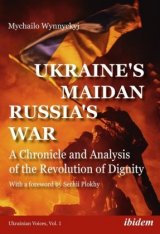
|
Ukraine's maidan, Russia's warMychailo Wynnyckyj: Ukraine's maidan, Russia's war : a chronicle and analysis of the revolution of dignity, Stuttgart : Ibidem Press, [2019] In early 2014, sparked by an assault by their government on peaceful students, Ukrainians rose up against a deeply corrupt, Moscow-backed regime. Initially demonstrating under the banner of EU integration, the Maidan protesters proclaimed their right to a dignified existence; they learned to organize, to act collectively, to become a civil society. Most prominently, they established a new Ukrainian identity: territorial, inclusive, and present-focused with powerful mobilizing symbols. Driven by an urban "bourgeoisie" that rejected the hierarchies of industrial society in favor of a postmodern heterarchy, a previously passive post-Soviet country experienced a profound social revolution that generated new senses: "Dignity" and "fairness" became rallying cries for millions. Europe as the symbolic target of political aspiration gradually faded, but the impact (including on Europe) of Ukraine's revolution remained. When Russia invaded--illegally annexing Crimea and then feeding continuous military conflict in the Donbas--Ukrainians responded with a massive volunteer effort and touching patriotism. In the process, they transformed their country, the region, and indeed the world. This book provides a chronicle of Ukraine's Maidan and Russia's ongoing war, and puts forth an analysis of the Revolution of Dignity from the perspective of a participant observer. (Verlagstext) Hinzugefügt am 25.03.2024
|
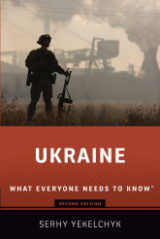
|
Ukraine : what everyone needs to know®Serhy Yekelchyk: Ukraine : what everyone needs to know®, New York : Oxford University Press, Incorporated ; [Ann Arbor] : Proquest, [2020] Conventional wisdom dictates that Ukraine’s political crises can be traced to the linguistic differences and divided political loyalties that have long fractured the country. However, this theory obscures the true significance of Ukraine’s recent civic revolution and the conflict’s crucial international dimension. The 2013-14 Ukrainian revolution presented authoritarian powers in Russia with both a democratic and a geopolitical challenge. In reality, political conflict in Ukraine is reflective of global discord, stemming from differing views on state power, civil society, and democracy. Ukraine’s sudden prominence in American politics has compounded an already-widespread misunderstanding of what is actually happening in the nation. In the American media, Ukraine has come to signify an inherently corrupt place, rather than a real country struggling in the face of great challenges. Ukraine: What Everyone Needs to Know® is an updated edition of Serhy Yekelchyk’s 2015 publication, The Conflict in Ukraine. It addresses Ukraine’s relations with the West, particularly the United States, from the perspective of Ukrainians. The book explains how independent Ukraine fell victim to crony capitalism, how its people rebelled twice in the last two decades in the name of democracy and against corruption, and why Russia reacted so aggressively to the strivings of Ukrainians. Additionally, it looks at what we know about alleged Ukrainian interference in the 2016 US presidential election, the factors behind the stunning electoral victory of the political novice Volodymyr Zelensky, and the ways in which the events leading to the impeachment proceedings against President Donald Trump have changed the Russia-Ukraine-US relationship. This volume is essential reading for anyone who wants to understand the forces that have shaped contemporary politics in this increasingly important part of Europe, as well as the international background of the impeachment proceedings in the US. (Verlagstext) Hinzugefügt am 25.03.2024
|
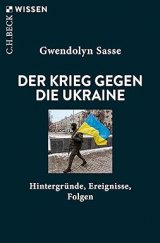
|
Der Krieg gegen die UkraineGwendolyn Sasse: Der Krieg gegen die Ukraine : Hintergründe, Ereignisse, Folgen, München : C.H. Beck, 2022 Warum und wogegen führt Russland in der Ukraine Krieg? Und wie erklärt sich die Stärke des ukrainischen Widerstands, von dem nicht nur Wladimir Putin überrascht wurde, sondern auch viele westliche Beobachter und Beobachterinnen? Die Osteuropa-Expertin Gwendolyn Sasse analysiert die Hintergründe des russischen Angriffs, der schon 2014 begann, und fragt, welche Folgen er hat - für Russland, für die Ukraine, aber auch für uns im Westen. Hinzugefügt am 25.03.2024
|
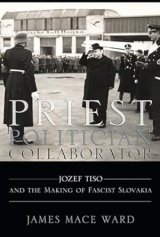
|
Priest, politician, collaboratorJames Mace Ward: Priest, politician, collaborator : Jozef Tiso and the making of fascist Slovakia, Ithaca : Cornell University Press, 2013 In Priest, Politician, Collaborator, James Mace Ward offers the first comprehensive and scholarly English-language biography of the Catholic priest and Slovak nationalist Jozef Tiso (1887-1947). The first president of an independent Slovakia, established as a satellite of Nazi Germany, Tiso was ultimately hanged for treason and (in effect) crimes against humanity by a postwar reunified Czechoslovakia. Drawing on extensive archival research, Ward portrays Tiso as a devoutly religious man who came to privilege the maintenance of a Slovak state over all other concerns, helping thus to condemn Slovak Jewry to destruction. Ward, however, refuses to reduce Tiso to a mere opportunist, portraying him also as a man of principle and a victim of international circumstances. This potent mix, combined with an almost epic ability to deny the consequences of his own actions, ultimately led to Tiso's undoing. Tiso began his career as a fervent priest seeking to defend the church and pursue social justice within the Kingdom of Hungary. With the breakup of Austria-Hungary in 1918 and the creation of a Czechoslovak Republic, these missions then fused with a parochial Slovak nationalist agenda, a complex process that is the core narrative of the book. Ward presents the strongest case yet for Tiso's heavy responsibility in the Holocaust, crimes that he investigates as an outcome of the interplay between Tiso's lifelong pattern of collaboration and the murderous international politics of Hitler's Europe. To this day memories of Tiso divide opinion within Slovakia, burdening the country's efforts to come to terms with its own history. As portrayed in this masterful biography, Tiso's life not only illuminates the history of a small state but also supplies a missing piece of the larger puzzle that was interwar and wartime Europe. (Verlagstext) Hinzugefügt am 25.03.2024
|
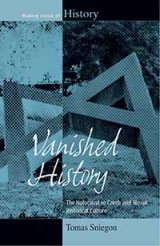
|
Vanished historyTomas Sniegon: Vanished history: The Holocaust in Czech and Slovak Historical Culture, New York, NY : Berghahn Books, 2014 Bohemia and Moravia, today part of the Czech Republic, was the first territory with a majority of non-German speakers occupied by Hitler’s Third Reich on the eve of the World War II. Tens of thousands of Jewish inhabitants in the so called Protectorate of Bohemia and Moravia soon felt the tragic consequences of Nazi racial politics. Not all Czechs, however, remained passive bystanders during the genocide. After the destruction of Czechoslovakia in 1938-39, Slovakia became a formally independent but fully subordinate satellite of Germany. Despite the fact it was not occupied until 1944, Slovakia paid Germany to deport its own Jewish citizens to extermination camps. Hinzugefügt am 25.03.2024
|
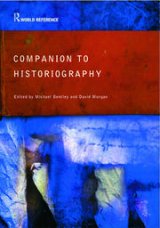
|
Companion to historiographyMichael Bentley (ed.): Companion to historiography, London, New York : Routledge, Taylor and Francis Group, 1997 The Companion to Historiography is an original analysis of the moods and trends in historical writing throughout its phases of development and explores the assumptions and procedures that have formed the creation of historical perspectives. Contributed by a distinguished panel of academics, each essay conveys in direct, jargon-free language a genuinely international, wide-angled view of the ideas, traditions and institutions that lie behind the contemporary urgency of world history. (Verlagstext) Hinzugefügt am 25.03.2024
|
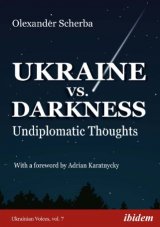
|
Ukraine vs. DarknessOlexander Scherba: Ukraine vs. Darkness : undiplomatic thoughts, Stuttgart : ibidem Verlag, 2021 This book draws on the author’s experience from 26 years of Ukrainian diplomatic service in, among others, Bonn, Berlin, Washington, and Vienna, and his work as a speechwriter to most Ukrainian foreign ministers for the last two decades. Scherba’s captivating essays reflect his views of international affairs from a Ukrainian perspective. His deliberations are presented in uncomplicated, plain language. The articles assembled here have repeatedly caused discussion in Ukraine and abroad. By his opponents, Scherba is often described as being surprisingly undiplomatic and even provocative. For instance, his article “Why nationalism can’t be the national idea of a European Ukraine”, published on a Ukrainian nationalist website, stirred considerable controversy in Ukraine. Aside from explaining Kyiv’s take on some key issues of international relations, these essays provide insights into Ukrainian political thinking since the start of Russia’s military aggression in 2014, and into the painful political intramural fights in Ukrainian society ever since. (Verlagstext) Hinzugefügt am 19.02.2024
|
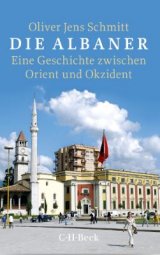
|
Die AlbanerOliver Jens Schmitt: Die Albaner : eine Geschichte zwischen Orient und Okzident, München, C.H. Beck, 2018 Seit dem Kosovokrieg und der späteren Unabhängigkeit des Kosovo beschäftigt die „albanische Frage“ die europäische Politik. 1912 entstand, nach dem Ende des Osmanischen Reiches, der albanische Staat. Doch umfasst er nur gut die Hälfte aller Albaner, die das größte muslimische Volk Europas sind. Erstmals schildert das vorliegende Buch die Geschichte aller Albaner in Südosteuropa, in Albanien, aber auch in Kosovo, Makedonien, Montenegro und Griechenland. Viele Jahre war Albanien unter dem Diktator Enver Hoxha von aller Welt isoliert. Seit 2008 gibt es mit Albanien und Kosovo zwei albanische Staaten, die beide mit schweren politischen und wirtschaftlichen Problemen kämpfen. Die Albaner stellen sich heute zunehmend die Frage, wohin sie gehören: zum islamischen Orient oder zum europäischen Okzident? (Verlagstext) Hinzugefügt am 19.02.2024
|
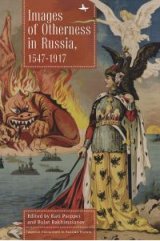
|
Images of otherness in RussiaKati Parppei, Bulat Rakhimzianov (ed.): Images of otherness in Russia, 1547-1917, [Ann Arbor] : ProQuest Ebook Central, 2023 Defining the Others, “them”, in relation to one’s own reference group, “us”, has been an essential phase in the formation of collective identities. This volume examines the development and contexts of various images, perceptions and categories of the external and internal Others in Russia from the 16th century Muscovy to the collapse of the Russian empire. (Verlagstext) Hinzugefügt am 19.02.2024
|
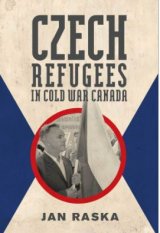
|
Czech refugees in Cold War CanadaJan Raska: Czech refugees in Cold War Canada, [Ann Arbor] : ProQuest Ebook Central, [2018] During the Cold War, more than 36,000 individuals entering Canada claimed Czechoslovakia as their country of citizenship. A defining characteristic of this migration of predominantly political refugees was the prevalence of anti-communist and democratic values. Diplomats, industrialists, politicians, professionals, workers, and students fled to the West in search of freedom, security, and economic opportunity. Hinzugefügt am 19.02.2024
|
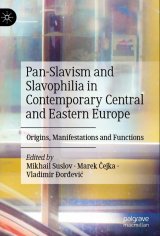
|
Pan-Slavism and Slavophilia in contemporary Central and Eastern EuropeMikhail Suslov, Marek Čejka, Vladimir Đorđević (ed.): Pan-Slavism and Slavophilia in contemporary Central and Eastern Europe : origins, manifestations and functions, [Ann Arbor] : ProQuest Ebook Central, [2023] This book explores origins, manifestations, and functions of Pan-Slavism in contemporary Central and Eastern Europe, arguing that despite the extinction of Pan-Slavism as an articulated Romantic-era geopolitical ideology, a number of related discourses, metaphors, and emotions have spilled over into the mainstream debates and popular imagination. Using the term Slavophilia to capture the range of representations, the volume analyses how geopolitical discourses shape the identity and policies of a community, providing a comparative analysis that covers a range of Slavic countries in order to understand how Pan-Slavism works and resonates across geographic and political contexts. (Verlagstext) Hinzugefügt am 19.02.2024
|
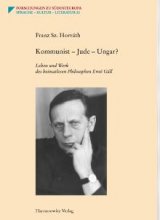
|
Kommunist - Jude - Ungar?Franz Sz. Horváth: Kommunist - Jude - Ungar? Leben und Werk des heimatlosen Philosophen Ernő Gáll, [Ann Arbor] : ProQuest Ebook Central, 2023
Hinzugefügt am 19.02.2024
|

|
Cold War exiles and the CIABenjamin Tromly: Cold War exiles and the CIA : plotting to free Russia, [Ann Arbor] : ProQuest Ebook Central, 2019 At the height of the Cold War in the 1950s, the United States government unleashed covert operations intended to weaken the Soviet Union. As part of these efforts, the CIA committed to supporting Russian exiles, populations uprooted either during World War Two or by the Russian Revolution decades before. No one seemed better prepared to fight in the American secret war against communism than the uprooted Russians, whom the CIA directed to carry out propaganda,espionage, and subversion operations from their home base in West Germany. Yet the American engagement of Russian exiles had unpredictable outcomes. Drawing on recently declassified and previously untapped sources, Cold War Exiles and the CIA examines how the CIA's Russian operations became entangled withthe internal struggles of Russia abroad and also the espionage wars of the superpowers in divided Germany. What resulted was a transnational political sphere involving different groups of Russian exiles, American and German anti-communists, and spies operating on both sides of the Iron Curtain. Inadvertently, CIA's patronage of Russian exiles forged a complex sub-front in the wider Cold War, demonstrating the ways in which the hostilities of the Cold War played out in ancillary conflictsinvolving proxies and non-state actors. (Verlagstext) Hinzugefügt am 19.02.2024
|
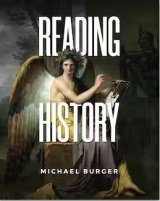
|
Reading historyMichael Burger: Reading history, Birmingham] : EBSCOhost, [2022] History students read a lot. They read primary sources. They read specialized articles and monographs. They sometimes read popular histories. And they read textbooks. Yet students are beginners, and as beginners they need to learn the differences among various kinds of readings - their natures, their challenges, and the unique expectations one needs to bring to each of them. Hinzugefügt am 19.02.2024
|
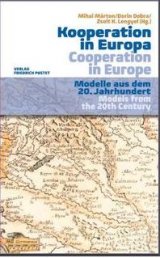
|
Kooperationen in EuropaMihai Márton, Dorin Dobra, Zsolt K. Lengyel (Hrsg.): Kooperationen in Europa : Modelle aus dem 20. Jahrhundert, [Birmingham] : EBSCOhost, 2014 Europa hat im 20. Jahrhundert eine Reihe unterschiedlicher Kooperationsmodelle erlebt. Dieser Band stellt einige dieser Konzepte vor. Im Mittelpunkt stehen dabei deren Entstehung, Rezeption und Wirkung vor allem in Ost,- Ostmittel- und Südosteuropa, wobei der Bogen von den 1920er und 1930er Jahren über die kommunistische Nachkriegszeit bis in die Gegenwart reicht. Die Autorinnen und Autoren des Bandes sind an universitären und außeruniversitären Einrichtungen in Berlin, Bochum, Budapest, Cluj-Napoca und Regensburg beschäftigt. Ihren deutsch- bzw. englischsprachigen Aufsätzen sind Zusammenfassungen in der jeweils anderen Sprache beigefügt. (Verlagstext) Hinzugefügt am 19.02.2024
|
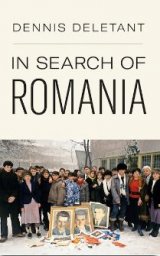
|
In search of RomaniaDennis Deletant: In search of Romania : a memoir, [Ann Arbor] : ProQuest Ebook Central, 2022 The imposition of Communist ideology was a misfortune for millions in Eastern Europe, but never for Dennis Deletant. Instead, it drew him to Romania. The renowned historian’s association with the country and its people dates back to 1965, when he first visited. Since then, Romania has made Dennis appreciate the value of shrewd dissimulation, in the face of the state’s gross intrusion in the life of the individual. This vivid memoir charts his first-hand experience of the Communist era, coloured by the early 1970s surveillance of his future wife Andrea; his contacts with dissidents; and his articles and BBC World Service broadcasts, which led to his being declared persona non grata in 1988. Hinzugefügt am 19.02.2024
|
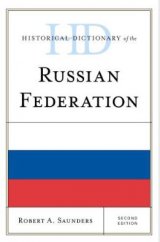
|
Historical dictionary of the Russian federationRobert A. Saunders: Historical dictionary of the Russian federation. Volume 1, [Ann Arbor] : ProQuest Ebook Central, [2019] Straddling Europe and Asia, the Russian Federation is the largest country in the world and home to a panoply of religious and ethnic groups from the Muslim Tatars to the Buddhist Buryats. Over the past 40 years, Russia has experienced the most dramatic transformation of any modern state. The second edition of Historical Dictionary of the Russian Federation provides insight into this rapidly developing country. This volume includes coverage of pivotal movements, events, and persons in the late Soviet Union (1985-1991) and contemporary Russia (1991-present), Hinzugefügt am 19.02.2024
|

|
Travelling in different skinsDúnlaith Bird: Travelling in different skins : gender identity in European women's Oriental travelogues, 1850-1950, Oxford : Oxford University Press, 2012 Vagabondage emerges as a totemic concept in European women’s travel writing from 1850, a physical and textual elaboration of gender identity in motion. This book constitutes a full length study of this paradigm. For travellers including Olympe Audouard, Isabella Bird, Isabelle Eberhardt and Freya Stark, vagabondage is a means of forcing pushing out the physical, geographical and textual parameters by which ‘women’ are defined. This book explores the negotiations of European women travel writers from 1850-1950 within the traditionally male-oriented discourses of colonialism and Orientalism. Moving from historical overview to close textual reading, it traces a complex web of tacit collusion and gleeful defiance. These women improvise access to the highly gendered ‘imaginative geography’ of the Orient. Tactics including cross-dressing, commerciality and the effacement of their male companions are used to carve out a space for their unconventional and often sexually hybrid constructions. Using a composite theoretical basis of the later critical work of Judith Butler and Edward Said, this comparative study of British and French colonial empires and gender norms draws out the nuances in these travellers’ constructions of gender identity. Women travel writers are shown to play an important role in the legacy of sexual experimentation and self-creation in the Orient, traditionally associated with male writers including Gide and Pierre Loti and now ripe for critical re-evaluation. This study demonstrates how these women use lived experiences of restriction and negotiation to elaborate advanced theories of motion and gender construction, presaging the concerns of twenty-first century feminism and post-colonialism. (Verlagstext) Hinzugefügt am 19.02.2024
|
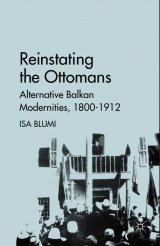
|
Reinstating the OttomansIsa Blumi: Reinstating the Ottomans : alternative Balkan modernities, 1800-1912, [Ann Arbor] : ProQuest Ebook Central, [2012] This book focuses on the western Balkans in the period 1820-1912, in particular on the peoples and social groups that the later national history would claim to have been Albanians, providing a revisionist exploration of national identity prior to the establishment of the nation-state. (Verlagstext) Hinzugefügt am 19.02.2024
|
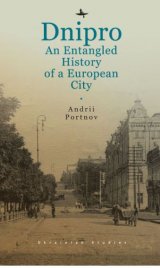
|
DniproAndrii Portnov: Dnipro : an entangled history of a European city, [Ann Arbor], ProQuest Ebook Central, 2022 This first English-language synthesis of the history of Dnipro (until 2016 Dnipropetrovsk, until 1926 Katerynoslav) locates the city in a broader regional, national, and transnational context and explores the interaction between global processes and everyday routines of urban life. The history of a place (throughout its history called 'new Athens', 'Ukrainian Manchester', 'the Brezhnev`s capital' and 'the heart of Ukraine') is seen through the prism of key threads in the modern history of Europe: the imperial colonization and industrialization, the war and the revolution in the borderlands, the everyday life and mythology of a Soviet closed city, and the transformations of post-Soviet Ukraine. Designed as a critical entangled history of the multicultural space, the book looks for a new analytical language to overcome the traps of both national and imperial history-writing. (Verlagstext) Hinzugefügt am 19.02.2024
|